Day in the Life: Conor Benn — UFC, Boxing, Fight Camp Life, Routine and Mindset
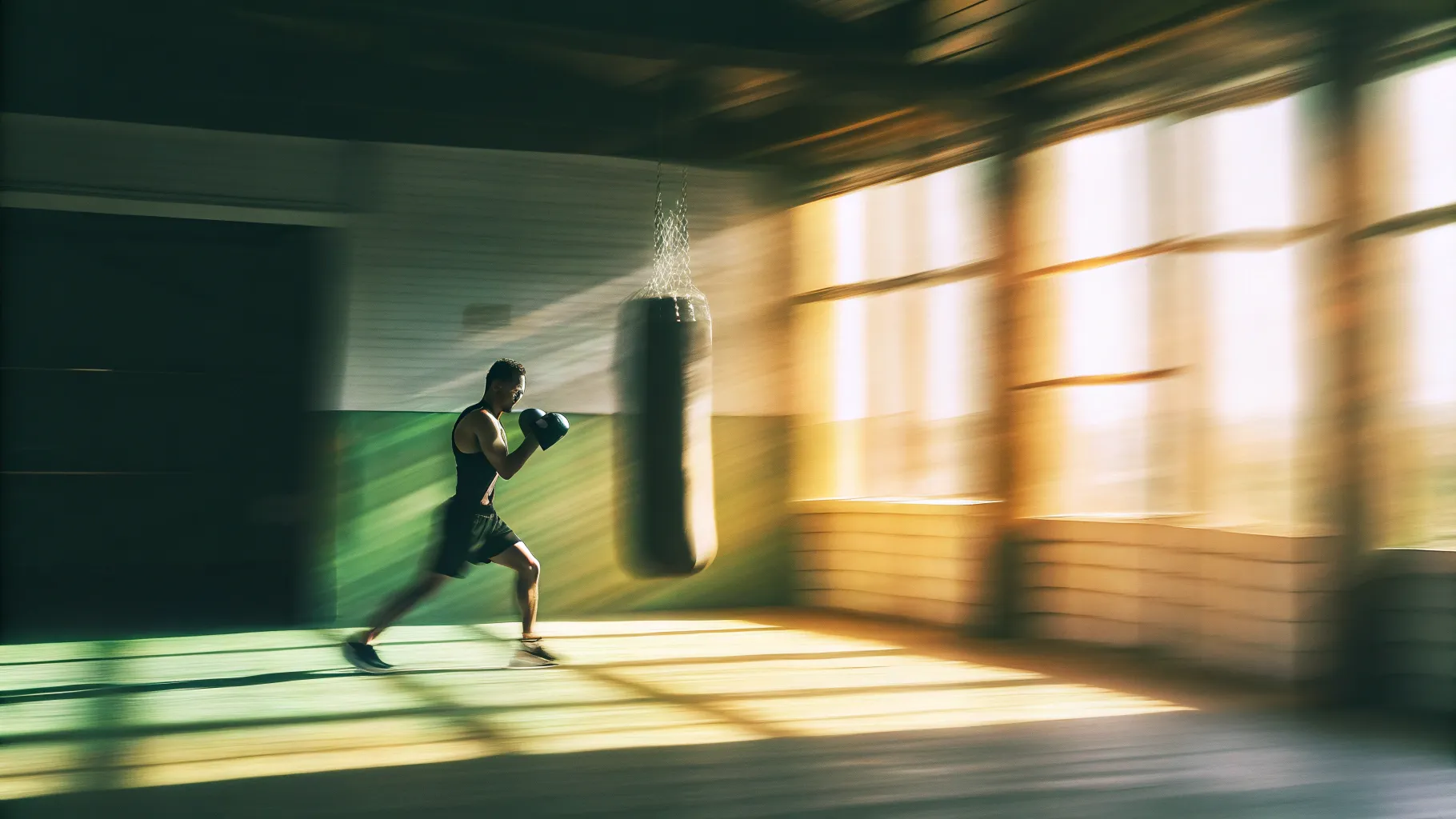
Ring Magazine invited me into camp in Mallorca to share a real, unfiltered day in my life — the mornings, the runs, the sparring, the recovery, and the small moments that pull everything together. If you follow UFC, Boxing, Fight culture, you know fight camp isn’t glamour — it’s grind. I’m writing this as the guy inside the gym, the father who gets up at 5 a.m., the fighter who treats every session like it could be the difference between winning and settling. Welcome to my casa, la casa de los Benz.
Table of Contents
- ☀️ Morning Routine: Why 5 a.m. Matters
- 🥊 Training Sessions: Making Every Session Count
- 🥤 Nutrition & Morning Rituals: Small Things, Big Impact
- 🛌 Recovery: The Quiet Work That Keeps Me Going
- 🏝️ Camp Life in Mallorca: Stepping Away to Focus
- 🔥 Mindset & Motivation: Fueling the Chip on My Shoulder
- ⚖️ Stepping Up: Fighting at 160 and the Unknowns
- 👥 Team & Brotherhood: The People Who Carry You
- 🧠 Composure in the Ring: From Debut Fear to Championship Calm
- 📅 Camp Schedule: How I Structure the Day
- 💬 Quotes & Reflections from Camp
- 🧩 Practical Tips I Use in Camp
- 🔚 Conclusion: Fight Camp Is a Lifestyle, Not a Phase
- ❓ FAQ — Your Questions About Camp, Training and Mindset
- 🏁 Final Thoughts
☀️ Morning Routine: Why 5 a.m. Matters
I’m usually up at five. Simple as that. There’s no poetic reason — it’s strategic. Waking up when the world is still sleeping takes you out of your comfort zone and forces clarity. For me, removing myself from familiarity and comfort is the first round of the day. If you’re serious about UFC, Boxing, Fight preparation, your mornings become the foundation. They determine the tempo for everything that follows: runs, second sessions, recovery, and the mental work that keeps you focused.
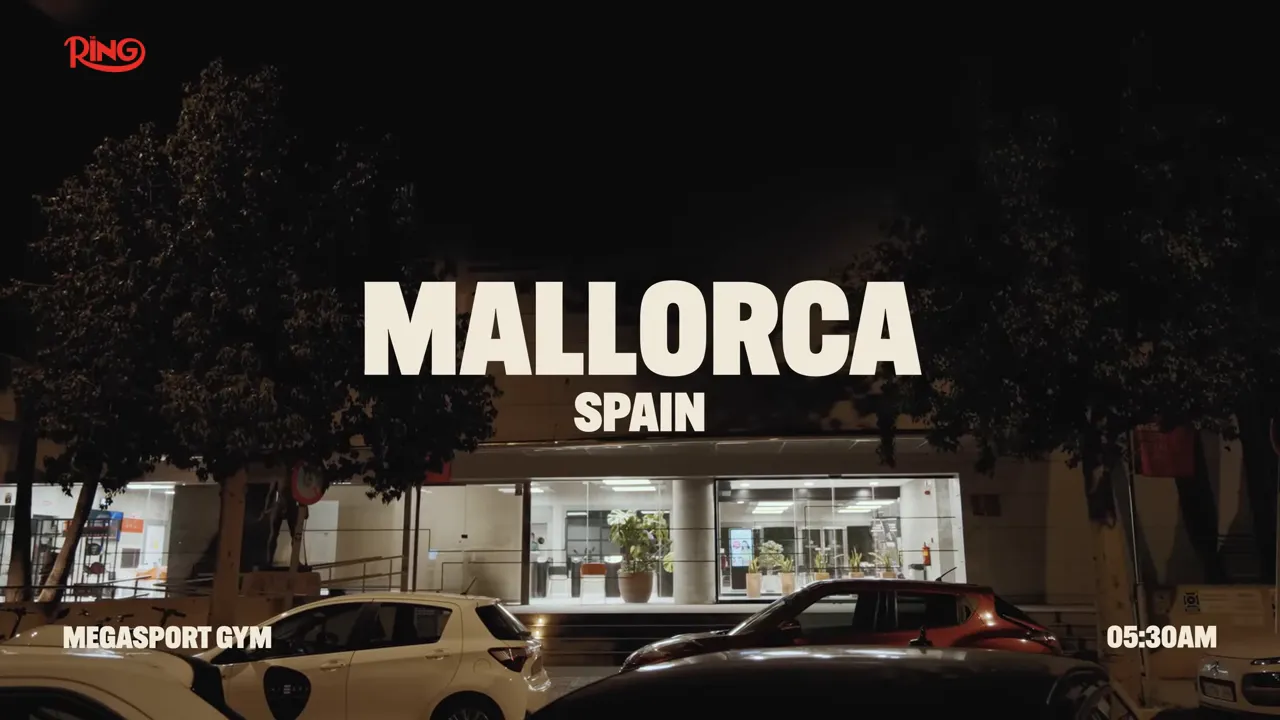
The early run is never glamorous. Sometimes it’s just me, a couple of coffees, and the road. I run tired intentionally: wake up, run, go back, and nap. That nap isn’t luxury — it’s currency. When you train twice a day, sleep between sessions is how you show up ready to fight, not just to go through the motions.
🥊 Training Sessions: Making Every Session Count
Everything I do in camp is about making every session as hard as possible. Discipline is easy to claim, hard to sustain. In training, there’s no half-measures. Whether it’s sprint intervals, pad work, or sparring, I aim to reach a point where the session feels like it’s extracting something from me — whether that’s speed, endurance, or composure. If you’re preparing for a UFC, Boxing, Fight, intensity beats duration. You want quality sessions with a purpose, not filler miles that don’t translate to the ring.
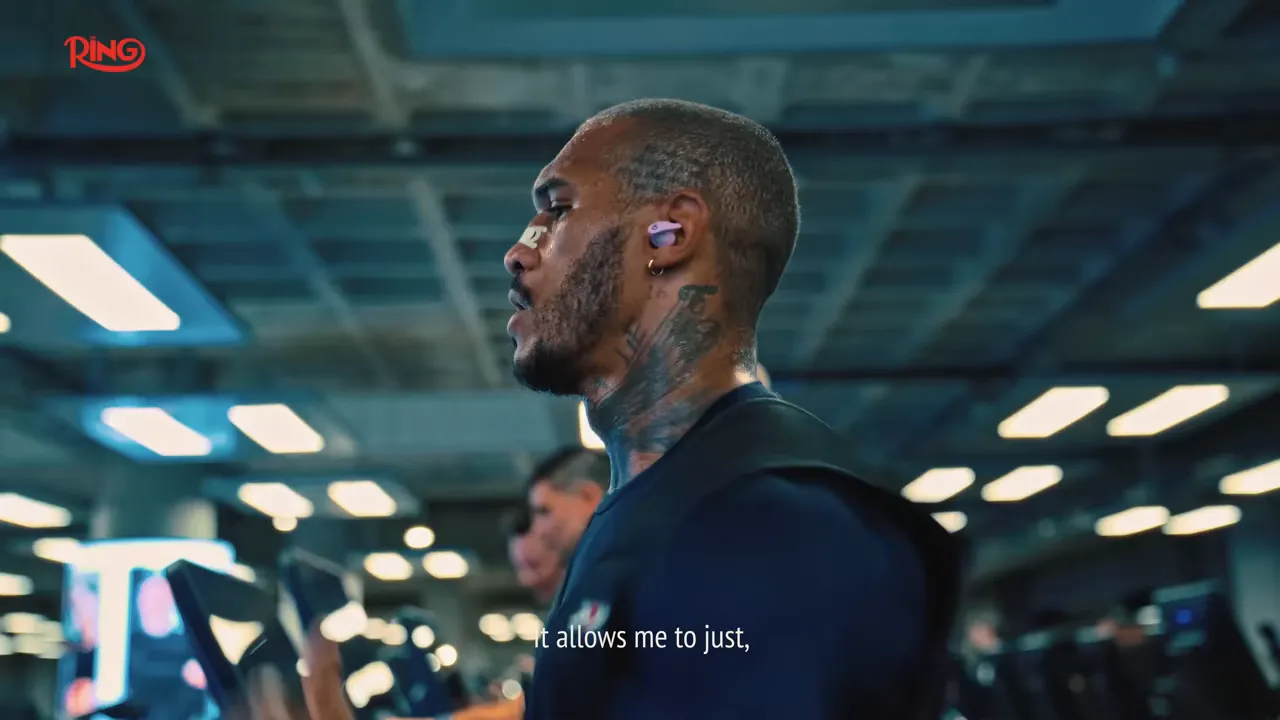
Sparring is sacred. It’s where you test the knife edge of what you’ve been working on. We alternate sparring sessions, changing styles and intensities so nothing feels predictable. Once a week, maybe every two weeks, we mix up the training. You can get stuck in patterns if you don’t shock the system. My coach chooses close, intimate camps. It’s not about numbers — it’s about the right people around you who push you to that next level.
🥤 Nutrition & Morning Rituals: Small Things, Big Impact
I’ve got a few rituals that sound boring but they work. There’s a shot I take — apple cider vinegar, cold-pressed ginger, cold-pressed turmeric, lime and hot water. Hot water activates the vinegar and helps digestion. That little ritual is about more than gut health; it’s a way to set intention. I’ve got a coffee, sure, but the recovery drinks, the ginger root, and small anti-inflammatories matter when you’re stacking two sessions a day. If your aim is UFC, Boxing, Fight readiness, what you do between your training sessions matters just as much as the work inside them.
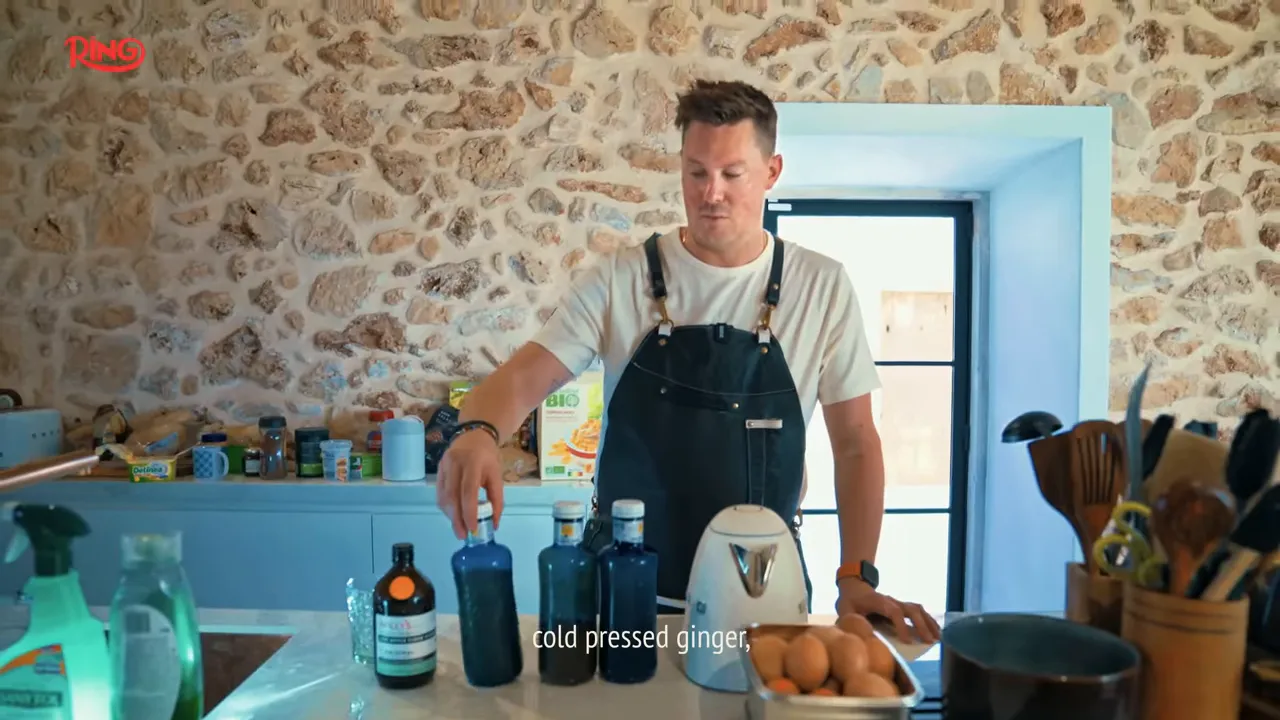
My team makes that drink with love or with quiet cruelty — depends if they’re trying to wake me up fast. That’s the amusing side of camp; there’s camaraderie and a bit of banter, but under it all, there’s focus. The small rituals — cold-pressed shots, stretching sequences, mobility drills — add up and keep you functioning at peak levels. When you’re stepping up two divisions and fighting guys who have been at a weight longer than you, attention to detail like that isn’t optional.
🛌 Recovery: The Quiet Work That Keeps Me Going
Recovery doesn’t get the headlines, but it’s the difference between showing up and showing out. Proactive recovery for me includes three physio sessions a week, massages, and targeted treatments. Between sessions I rest — not stroll around the town for miles. I nap, I chill, I let the body consolidate what it’s just endured. Think of recovery as investment; you put in time now so you can extract performance later.
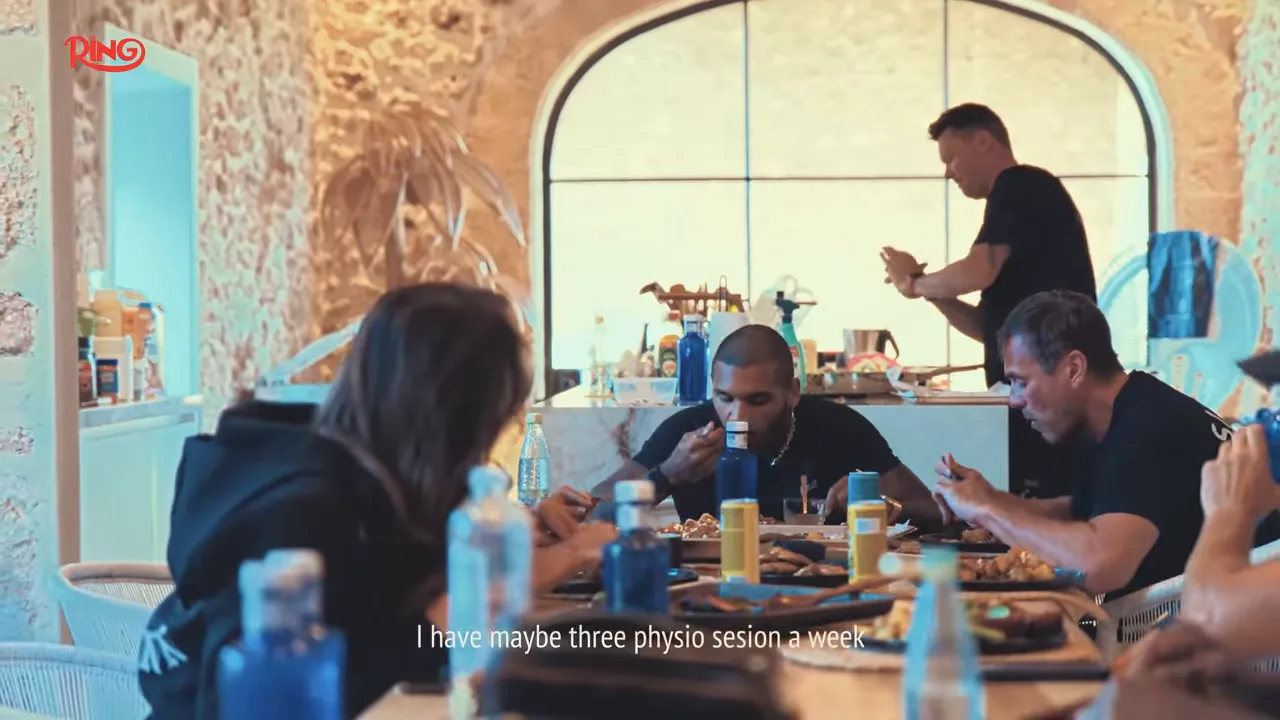
If you watch the fight world, you’ll see a lot of fighters who overdo the cardio or underinvest in recovery. That’s a mistake. I don’t gallop around for show. I do smart conditioning — sand runs, beach work, system-specific drills — then I back off so the body can adapt. It’s the small decisions across weeks that determine whether you can keep output through round 10, 11, or 12 in a UFC, Boxing, Fight scenario.
🏝️ Camp Life in Mallorca: Stepping Away to Focus
Camp in Mallorca is about removing distractions. I take myself away from the little things that soften a fighter: family comfort, the freedom to nap with a kid on your chest, the smell of home-cooked food — all the things I love, and all the things I have to temporarily detach from to get to the next level. This isn’t abandonment; it’s focus. You don’t have to choose family over fighting — you just need to separate them for a short stretch so you can come back better for both.
That separation is brutal at times. My son’s the first one who wakes me in the morning most days, and being away from that is a sacrifice. But if I’m honest, I made a choice: I don’t need boxing because it’s the only way to live, I box because it’s what I love. It’s selfish because I love fighting and winning. That selfishness is what fuels the grind — and in the end, it has to pay off.
🔥 Mindset & Motivation: Fueling the Chip on My Shoulder
People doubt you — let them. I’m not immune to that motivating energy. If anything, outside doubt sharpens me. There’s a chip on my shoulder that shows up every session. When someone says I can’t do it, it becomes a lever. You can complain and shrink, or you can use it. For me, I use that energy during sparring, in rounds where I’m trying to maintain output, in moments when I need to find another gear. That’s the difference between fighters who win on talent and fighters who win because they’ve made an art out of turning doubt into advantage.
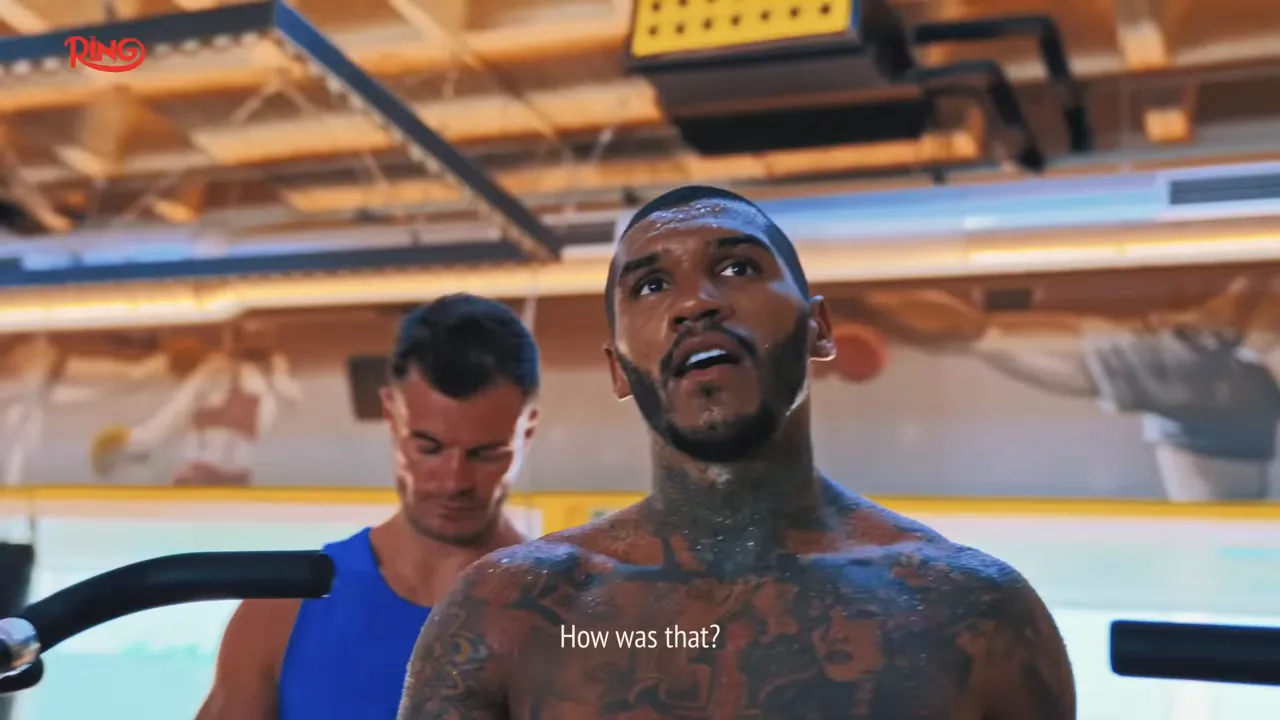
"For me it's not what's around you, it's what's in you and for me I'm... motivated, I've got a ton of ambition and fueled by a chip on my shoulder to go out there and achieve everything I want to achieve."
That quote isn’t philosophy class fluff — it’s a functional statement. When the lights go on and the bell rings, the only thing that matters is what you’ve kept ready inside your head and body. I don’t rely just on power; I’m making sure I can go rounds. I don’t need to bang people out to win — I’ll box for ten or twelve rounds if I have to. That adaptability is a mindset and a skill.
⚖️ Stepping Up: Fighting at 160 and the Unknowns
Stepping up two weight divisions is exciting and terrifying in equal measure. It’s a test of physical and strategic adaptation. I’m thriving on the unknowns. I love the challenge: different power profiles, reach, cadence. You have to adjust your conditioning and your approach. If you want to excel in UFC, Boxing, Fight contexts, you can’t be married to one formula. You have to be able to adapt on the fly.
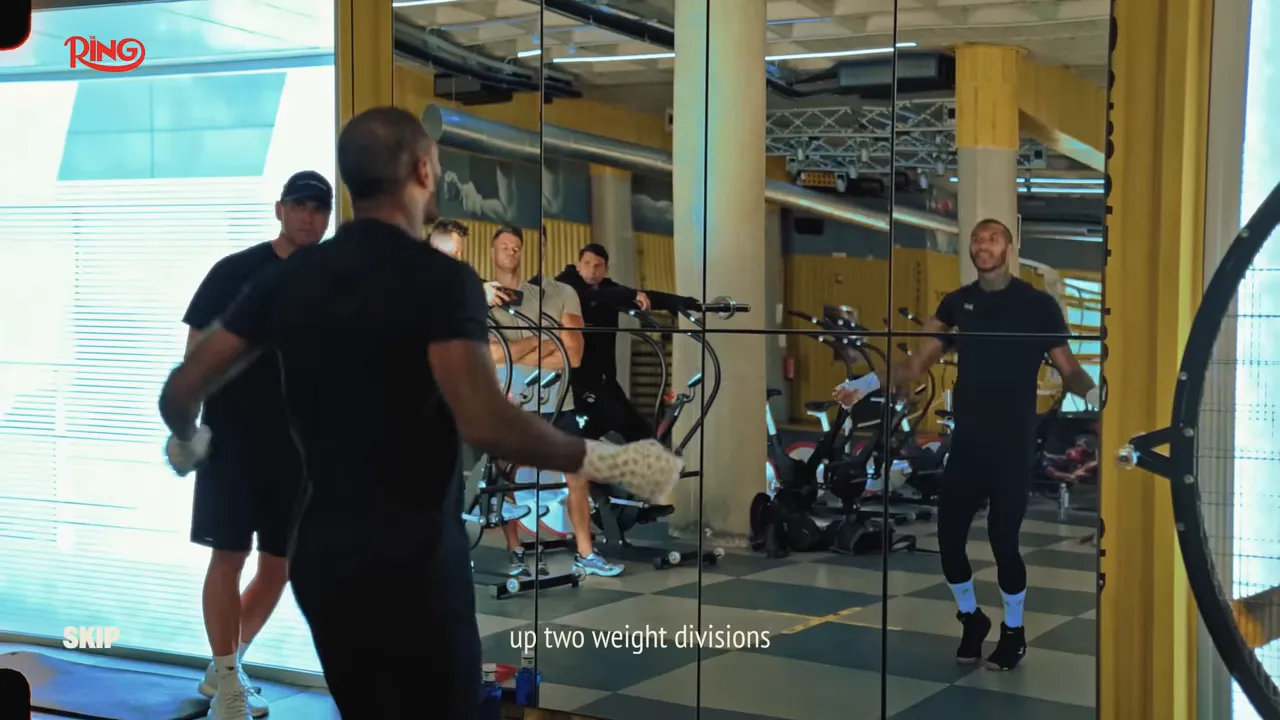
Fighting at 160 isn’t just about adding pounds. It’s about ensuring those pounds don’t slow you down. I’m working on maximizing speed and endurance at a higher weight. The conditioning is specific and the sparring is selected so I’m not surprised come fight night. You’re training to make your weaknesses tolerable and your strengths unavoidable.
👥 Team & Brotherhood: The People Who Carry You
Camp is intimate for a reason. The people Khan (my coach) brings into camp — they’re handpicked because they fit the plan. You don’t need a football team in a boxing camp. You need the right sparring partners, the right physio, the right tactical minds. The core group helps keep me honest and accountable. They also know when to wind me up, when to push, and when to let me sit in silence. That balance matters.
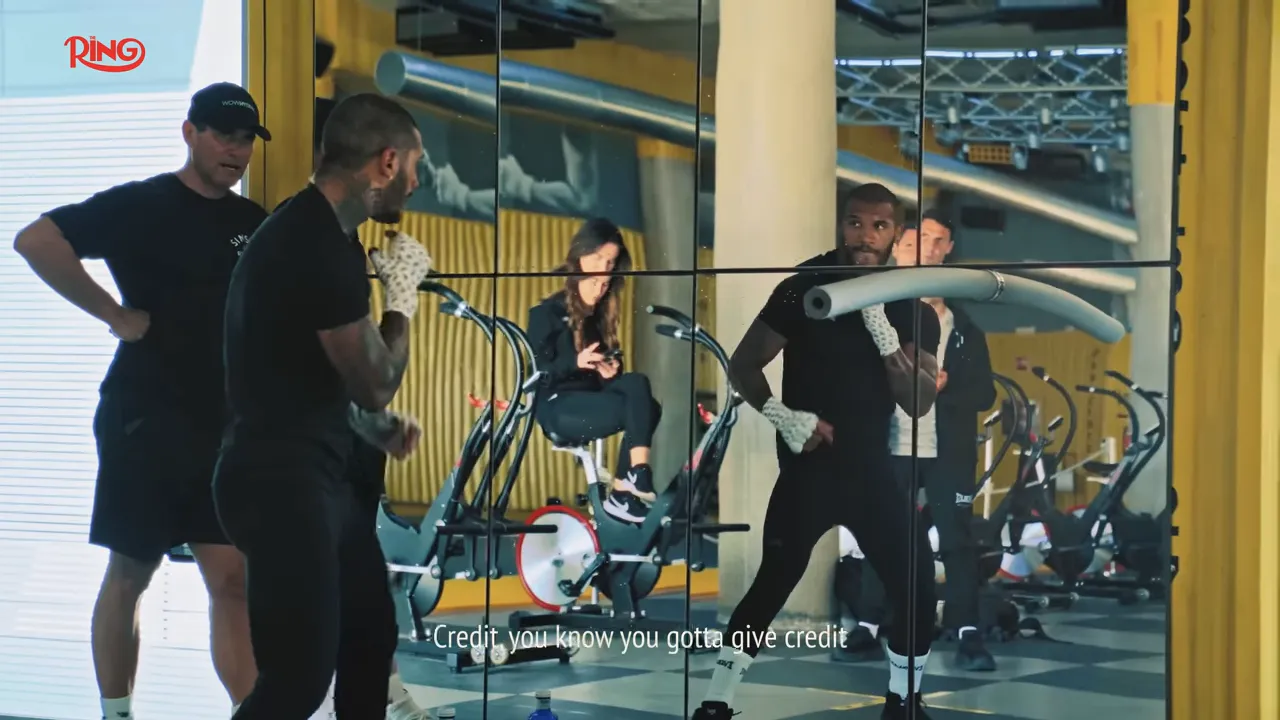
I built this career the hard way. There’s no overnight story here. When people say you can’t do something, that’s their limitation, not yours. Use that. If everyone’s doubting you for a fight, great — that’s fuel. When we used to live in Mallorca, my son said he’d be like me someday. My dad said no. Now people who told me no are having to reassess. That’s not revenge — it’s proof that consistent, intentional work moves the needle.
🧠 Composure in the Ring: From Debut Fear to Championship Calm
I was scared on my debut. Not because the opponent was big, but because the situation was new. I hadn’t learned how to be comfortable with the spotlight. Now? It’s different. Whether it’s a stadium or a small hall, once you step into the ring, the rest falls away. You can rehearse and prepare, but the biggest work is internal. Learning to be calm, to find rhythm under pressure, is the mark of progression from prospect to main eventer. That’s the kind of work that happens in camp and in the head.
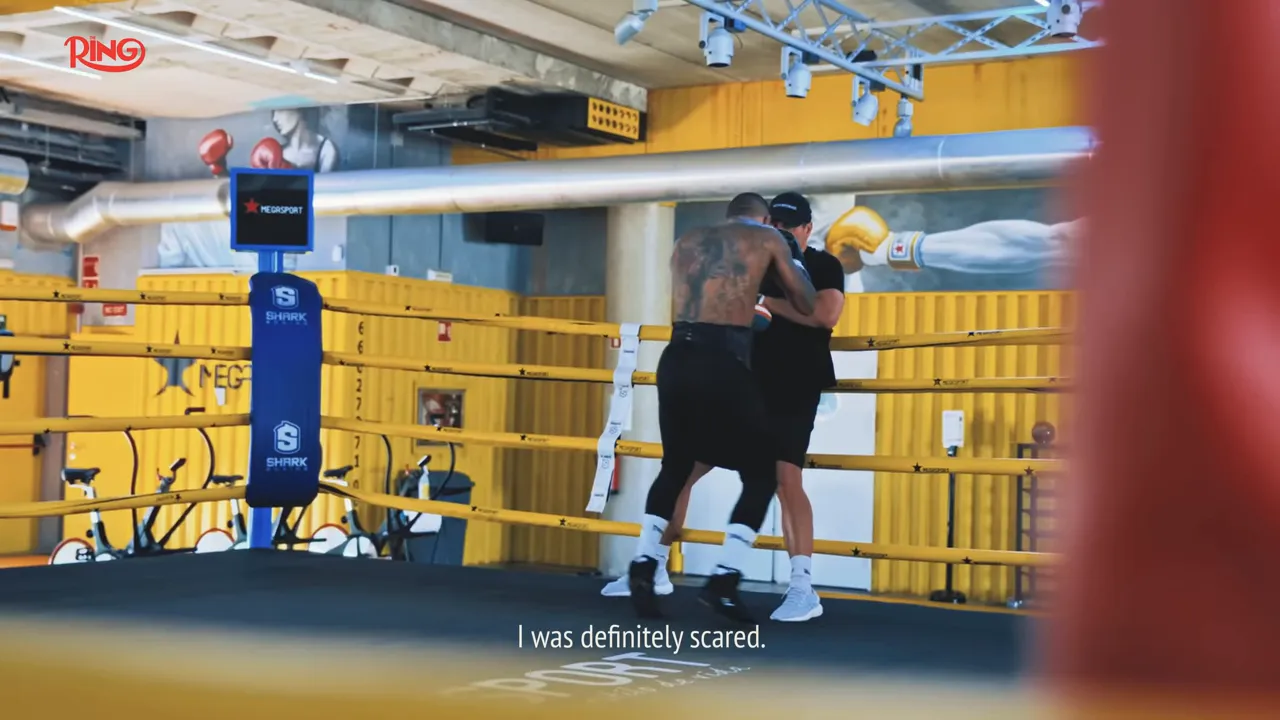
That calm isn’t manufactured. It’s the product of exposure. The more times you face high-pressure scenarios, the more your nervous system learns to accommodate them. This is where recovery helps again: a clear body and a rested nervous system process pressure better. You show up sharper and make fewer emotional mistakes in the ring — and in a UFC, Boxing, Fight, that’s gold.
📅 Camp Schedule: How I Structure the Day
Here’s a rough look at how a typical day in camp flows. It isn’t super rigid but it’s consistent:
- 05:00 — Wake, coffee, a short mobility sequence and the vinegar/ginger shot.
- 06:00 — Morning run or interval conditioning (beach/sand work sometimes).
- 09:00 — Skill session — pads, defense, footwork.
- 12:00 — Recovery: physio, nap, meal.
- 16:00 — Sparring or situational rounds.
- 19:00 — Massage, mobility, light meal, sleep prep.
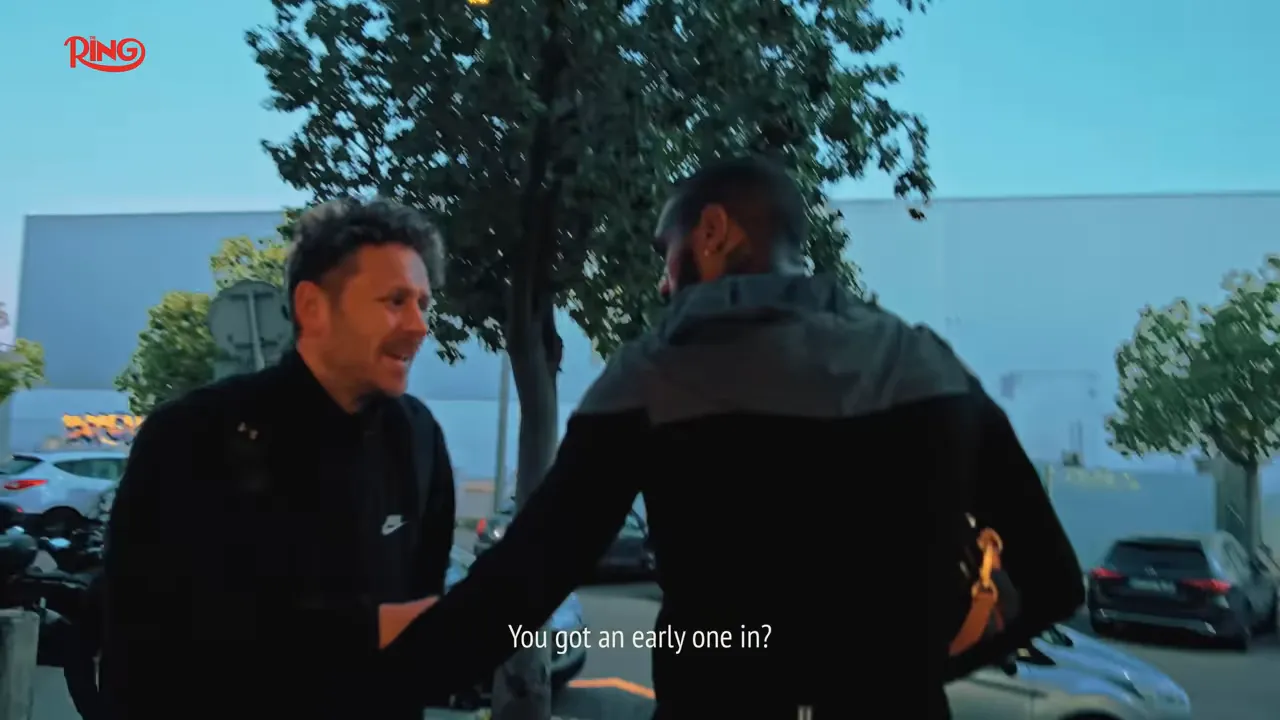
Discipline in scheduling equals freedom in the ring. You don’t get the liberty to improvise on fight night if you haven’t imposed structure on your days. When the bell rings for a UFC, Boxing, Fight, the structure becomes your safety net.
💬 Quotes & Reflections from Camp
There are lines that stick with me from training because they crystallize why I do this. I say them not to be poetic, but because they’re functional tools for focus.
"It’s selfish because I love it, because I love fighting, I love winning. It has to pay off. There is no choice."
That line is honest. Boxing is a career built from decisions repeated daily. You have to be okay with sacrifice. If you’re not, the grind will chew you up. That honesty keeps me sharp. It keeps my priorities aligned: train, recover, repeat, get better.
🧩 Practical Tips I Use in Camp
Here are practical takeaways for anyone who wants to adopt the fighter’s mindset for their own goals — whether you’re into UFC, Boxing, Fight training or using fight preparation as a metaphor for life:
- Wake up early and claim the quiet hours for focused work.
- Make sessions count — quality over quantity every time.
- Invest in recovery like it’s training time — because it is.
- Use doubt and criticism as fuel, not anchor.
- Structure your day to protect mental and physical energy.
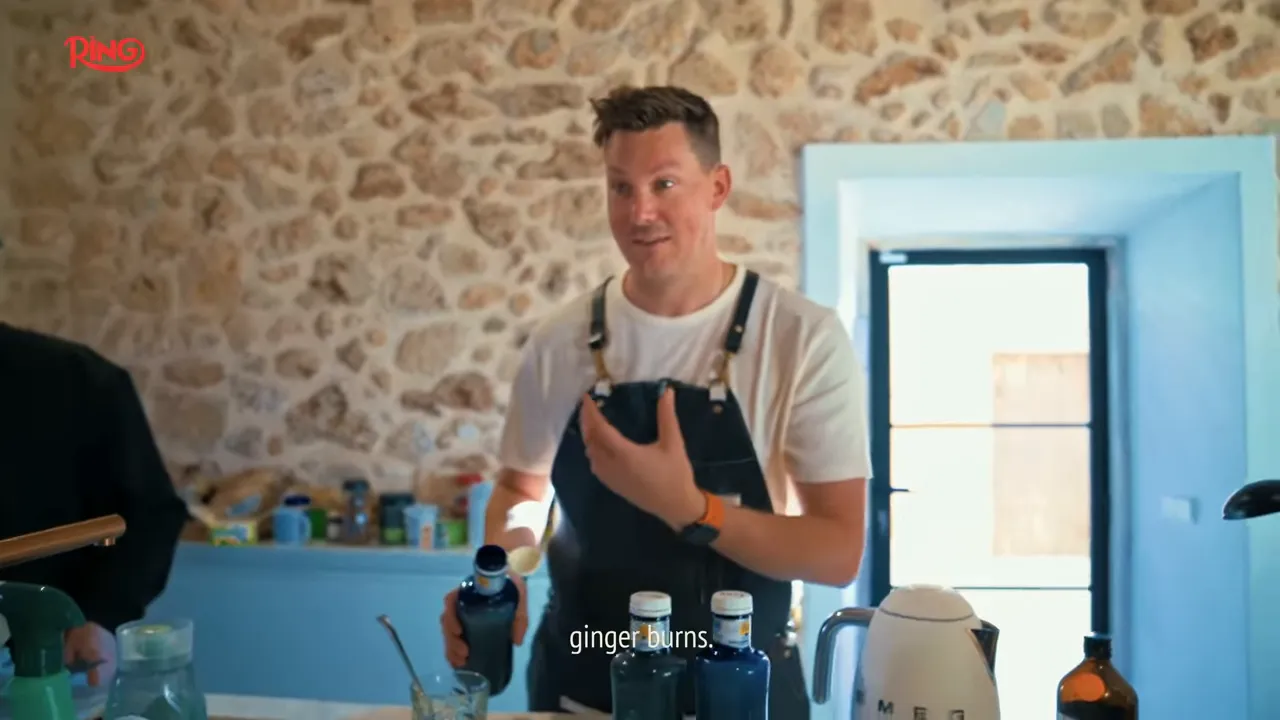
These aren’t revolutionary, but they’re hard to sustain. That’s why they work. Most people drop the small things first. Don’t be most people.
🔚 Conclusion: Fight Camp Is a Lifestyle, Not a Phase
Camp is a snapshot of something much larger. It’s ten years of decisions compressed into a few weeks of heightened focus. If you want the reward, you have to be patient for the accumulation. People will compare you, doubt you, and misunderstand you. That’s normal. If you were never doubted, you probably weren’t pushing boundaries. I don’t need to knock someone out to prove I’m better — I can box for twelve rounds and still be the superior fighter. In the end, if you’re serious about UFC, Boxing, Fight success, it’s the daily commitments, the early runs, the recovery sessions, and the tiny rituals that add up to greatness.
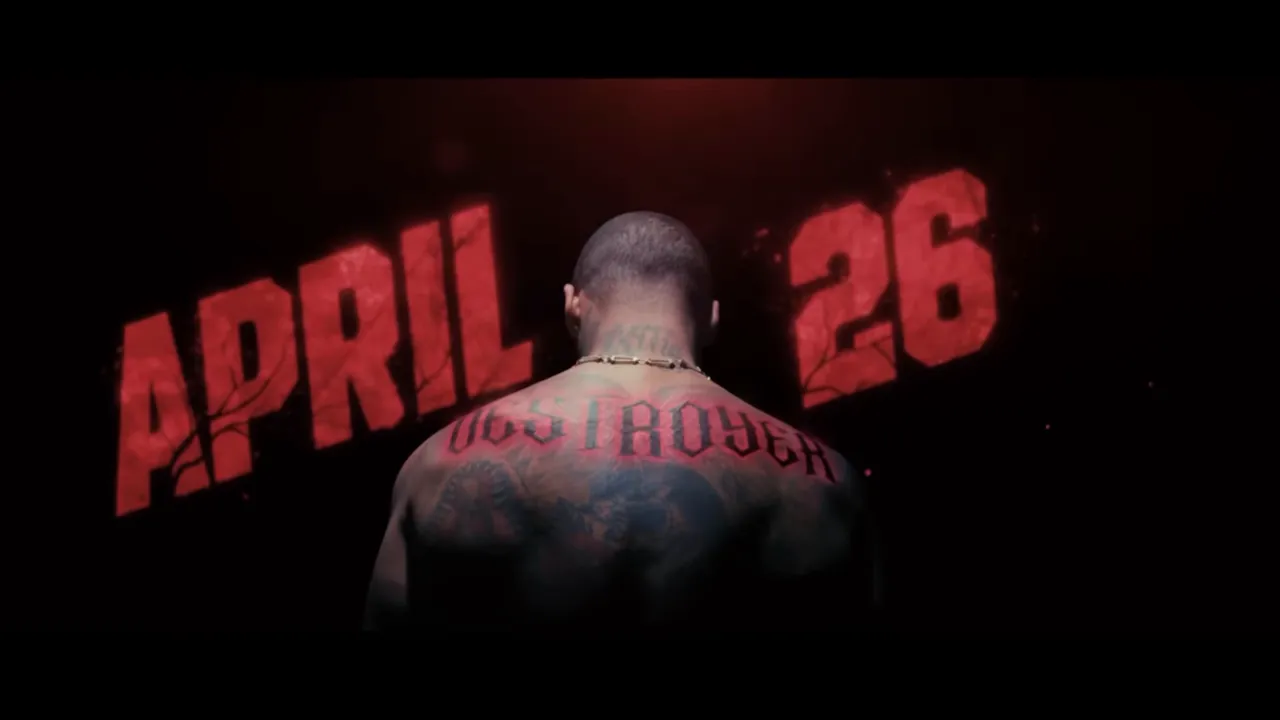
❓ FAQ — Your Questions About Camp, Training and Mindset
How do you balance family and camp life?
I separate them for a short stretch. I’m a dad first, but I know to sacrifice time now to give my family a better future later. The separation is temporary and purposeful.
What’s your number one training tip?
Make every session mean something. Sessions without purpose are just noise. If you want to be a top-level UFC, Boxing, Fight competitor, prioritize quality and specificity over volume.
How important is recovery?
Vital. Physio, massages, naps — they’re not indulgences, they’re training tools. If you don’t let your body recover, you won’t be able to sustain high intensity across an entire fight camp or across a career.
Do you ever feel afraid before a fight?
Yes — I was scared on my debut. Fear’s normal. The point is learning to operate effectively within that fear so it doesn’t control you. Exposure builds that skill. The more you face it, the less it takes away from your performance.
What advice would you give younger fighters?
Build your craft slowly. Focus on fundamentals, surround yourself with the right people, and don’t chase distractions. If you want to rise in the UFC, Boxing, Fight ranks, your long-term choices have to outpace short-term temptations.
How do you use criticism and doubt?
I turn it into motivation. If someone says you can’t do something, their limitation becomes my lever. Use it. Make it fuel. That chip on the shoulder isn’t a weakness — it’s an asset.
Where can fans watch your next fight?
My next fight is live on DAZN PPV and Sky, featured on a Ring Magazine card. If you’re into true UFC, Boxing, Fight competition and theater, tickets and PPV are available through official channels.
🏁 Final Thoughts
Camp is messy and beautiful at the same time. It’s early mornings, coffee, ginger shots, sand runs, physiotherapy, family sacrifice, and a constant mental tussle with doubt. If you’ve read this far, you know I don’t glamorize the process — I live it. If you want a peek behind the curtain of a fighter who’s dedicated to climbing higher, this is the reality: persistent, intentional, and hungry. See you in the ring.

